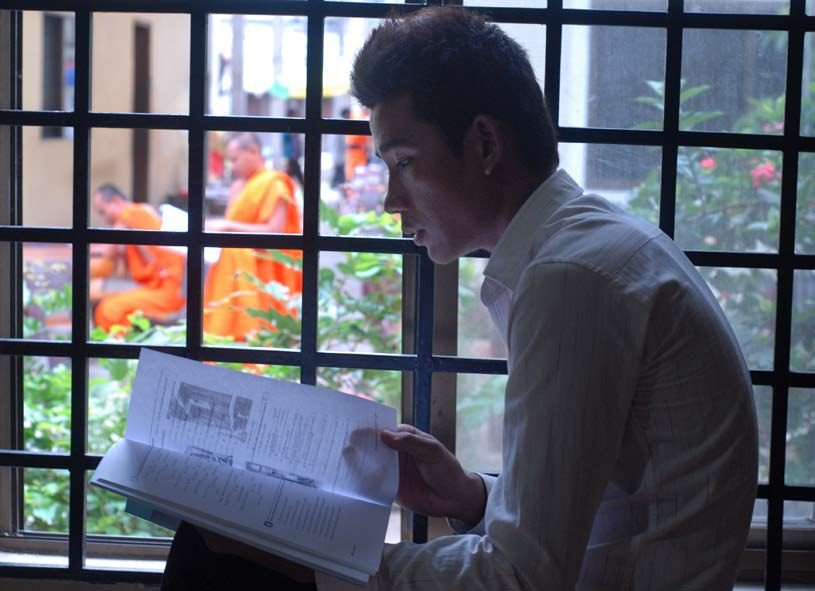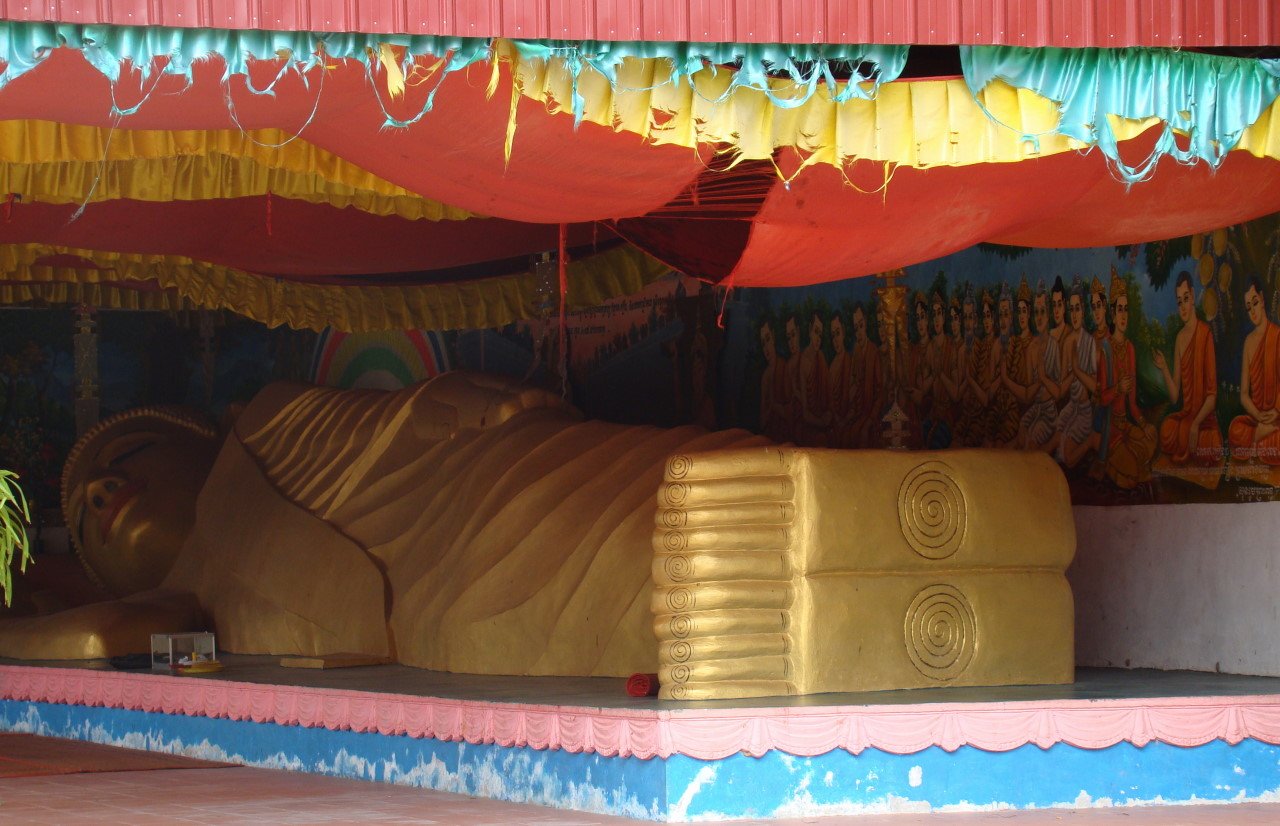Measuring just 8 square metres, it’s about half as big as a typical school classroom. One student is doing his homework on a table supporting two desktop computers, adjacent to a broken window. Another student strolls in and begins searching for some lost items in a row of old plastic closets on the opposite side of the room. All in all, the room isn’t much different from the other eight rooms at the monastery, each housing four students in a tiny space. Monastery 10 stands to the west of the main entrance to Mahamuntrei pagoda, surrounded by a number of stupas.
Oeum Vanna, 25, who hails from Kampong Speu province and hopes to continue his education at university, has been living in the pagoda for more than three years.
As he walks out of his room in his student’s uniform, he explains how he came to stay at the pagoda. “My parents asked this pagoda for permission two years before my high-school graduation,” says the first of four children born to a Kampong Speu farming family.
Ouem Vanna says that living at a pagoda means one has to adhere to its internal rules, including being out no later than 9pm. That deadline is not flexible, as at that time, the monks lock the gates of the pagoda for the security of the students.
Not every student who comes from the provinces gets a chance to stay at a city pagoda. “Only students with good backgrounds who come from impoverished conditions are permitted to stay here,” says Sao Oeun, head of the monastery at Mahamuntrei pagoda. Sao Oeun is responsible for administering the activities in the nine-room building.
He explains that every student seeking to live at the pagoda needs to undergo background checks to make sure he has a good academic history, no criminal record, and has displayed exemplary behaviour, as judged by his village chief or school principal.
Sao Oeun says he doesn’t want troublemakers at the pagoda, because this would disturb the lives of the rest of the students.
In fact, monks from the provinces with hopes of changing their own pagodas in some way have first priority when space is being allocated at the pagoda. All the extra rooms go to students from rural areas. “There are not many rooms for all students who want to be in the Phnom Penh, but at least we can help some of them,” the head of the monastery says.
Mahamuntrei pagoda is not the only place students can seek accommodation when transferring to the city to continue their education. Samrong Andet, in Sangkat Phnom Penh Thmey, just outside Phnom Penh, is another pagoda that accepts rural students seeking to better their circumstances.
Since 1993, when the pagoda began accepting students, thousands have stayed there free of charge. Two hundred are currently staying at the pagoda. Ra Son, one of the four monks responsible for overseeing the pagoda boys, says the pagoda’s grounds contain 100 rooms in which students can stay, with two students occupying each small room and four in each large room.
Even after face-to-face interviews and extensive background checks, not all the miscreants can be weeded out, and some still commit offences while living at the pagoda.
“No one can be perfect all the time,” Ra Son says philosophically.
29/06/2011 By: Dara Saoyuth and Tang Khyhay This article was published on LIFT, Issue 77 published on June 29, 2011Related articles
- Living in a pagoda, an alternative to stay and study in Phnom Penh_original version (saoyuth.wordpress.com)
- My day with Khmer manuscript restoration team (saoyuth.wordpress.com)

